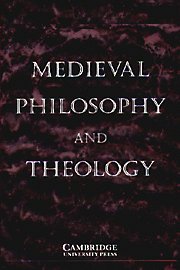No CrossRef data available.
Article contents
Happiness and Freedom in Aquinas’s Theory of Action
Published online by Cambridge University Press: 30 July 2001
Abstract
Thomas Aquinas is commonly thought to hold that human beings will happiness and do so necessarily. This is taken to mean first that human beings are not able to will misery for the sake of misery and therefore not capable of pursuing misery for its own sake. Secondly, everything that human beings do will they will for the sake of happiness, and since human beings are moved to act on the basis of what they will, all of their actions are performed for the sake of happiness. This claim is subject to doubt because it seems to many to be false on empirical grounds. Often, people choose things that they know and are willing to admit do not make them happy. Often, people choose things without even thinking about their happiness. Aquinas’s theory must deal adequately with such apparent counterexamples. But his account faces an objection of a different nature, an objection raised by John Duns Scotus.
- Type
- Research Article
- Information
- Copyright
- © 1999 Cambridge University Press


